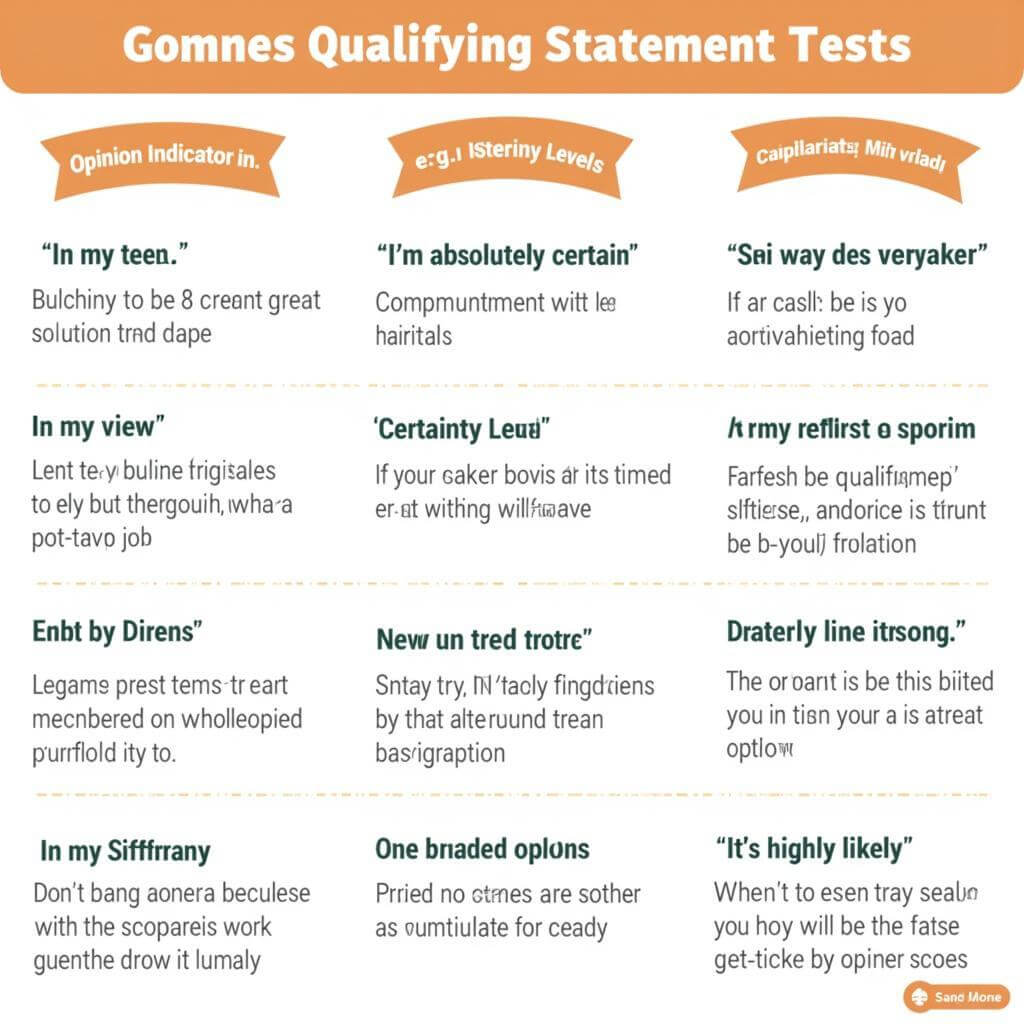Are you gearing up for the IELTS exam and feeling anxious about the listening section? You’re not alone. Many test-takers find identifying speaker bias in audio particularly challenging. In this comprehensive guide, we’ll explore effective strategies to help you excel in this crucial aspect of IELTS listening.
Understanding Speaker Bias in IELTS Listening
Speaker bias refers to the subjective opinions, attitudes, or preferences expressed by speakers in audio recordings. Recognizing this bias is essential for accurately interpreting the speaker’s message and answering questions correctly.
Why is Identifying Speaker Bias Important?
- Improved comprehension: Understanding bias helps you grasp the speaker’s true intent.
- Better question-answering: Many IELTS listening questions require you to identify the speaker’s attitude or opinion.
- Enhanced critical thinking: Recognizing bias sharpens your analytical skills, benefiting you beyond the test.
Recognizing speaker bias effectively is a skill that can significantly boost your IELTS listening score. Let’s dive into some expert strategies to help you master this skill.
Key Strategies for Identifying Speaker Bias
1. Pay Attention to Tone and Intonation
The speaker’s tone can reveal a lot about their attitude towards the subject. Listen carefully for:
- Enthusiasm or excitement
- Skepticism or doubt
- Sarcasm or irony
- Frustration or anger
Dr. Emma Thompson, a renowned IELTS trainer, emphasizes, “Tone of voice is often more revealing than the words themselves. Train your ear to pick up on these subtle cues.”
2. Look for Emotive Language
Speakers often use emotionally charged words to express their bias. Be on the lookout for:
- Positive adjectives (e.g., “amazing,” “fantastic”)
- Negative adjectives (e.g., “terrible,” “disastrous”)
- Intensifiers (e.g., “extremely,” “absolutely”)
3. Identify Qualifying Statements
Speakers may use certain phrases to soften or strengthen their opinions:
- “In my opinion…”
- “I believe that…”
- “It’s clear that…”
- “Without a doubt…”

4. Recognize Comparative Language
Speakers often reveal their bias by comparing different viewpoints or options:
- “X is better than Y”
- “Unlike A, B is…”
- “Compared to the previous approach, this method is…”
5. Be Aware of Personal Pronouns
The use of personal pronouns can indicate the speaker’s level of involvement or bias:
- “I” or “we” suggest personal experience or opinion
- “They” or “them” might indicate distance or disagreement
6. Listen for Repetition and Emphasis
Speakers often repeat or emphasize certain points to convey their bias:
- Repeated phrases or ideas
- Stressed words or syllables
Recognizing speaker’s emotional shifts can also help you identify bias more effectively.
Practice Exercises for Identifying Speaker Bias
To improve your skills in recognizing speaker bias, try these exercises:
- Listen to opinion pieces or editorials and identify the speaker’s stance.
- Watch debate videos and note how participants express their biases.
- Practice with IELTS listening sample tests, focusing on questions that require identifying opinions or attitudes.
IELTS expert John Davies suggests, “Regular practice with diverse audio sources is key. Expose yourself to different accents and speaking styles to sharpen your bias detection skills.”
Common Pitfalls to Avoid
When identifying speaker bias in IELTS listening, be careful to avoid these common mistakes:
- Confusing facts with opinions
- Overlooking subtle expressions of bias
- Letting your own biases influence your interpretation
- Focusing too much on individual words rather than overall context
Tips for Answering Bias-Related Questions
When tackling questions that require you to identify speaker bias:
- Read the questions beforehand to know what to listen for
- Take notes on key phrases and tone indicators
- Consider the overall context of the audio passage
- How to approach true/false questions in IELTS listening can be particularly helpful for bias-related questions
Conclusion
Identifying speaker bias in audio is a critical skill for success in IELTS listening. By paying attention to tone, language choice, and context, you can significantly improve your ability to recognize and interpret speaker bias. Remember, practice is key. The more you expose yourself to various speaking styles and opinions, the better you’ll become at identifying bias.
As you prepare for your IELTS exam, incorporate these strategies into your study routine. With consistent practice and a keen ear, you’ll be well-equipped to tackle even the most challenging bias-related questions in the IELTS listening section.
FAQs About Identifying Speaker Bias in IELTS Listening
-
Q: How can I improve my ability to detect sarcasm in IELTS listening?
A: Practice with comedy shows or satirical podcasts to familiarize yourself with sarcastic tones and contexts. -
Q: Are there specific words that always indicate bias?
A: While no words always indicate bias, emotive language and strong adjectives often suggest a speaker’s opinion. -
Q: How important is cultural knowledge in identifying speaker bias?
A: Cultural awareness can be helpful, but IELTS questions are designed to be fair to all test-takers regardless of cultural background. -
Q: Can speaker bias be neutral?
A: While bias usually implies a strong opinion, speakers can express balanced or neutral views. Pay attention to phrases like “on the one hand… on the other hand.” -
Q: How do I differentiate between the speaker’s personal opinion and general facts in IELTS listening?
A: Look for personal pronouns and qualifying statements for opinions, and listen for references to studies or statistics for facts. -
Q: Is it necessary to agree with the speaker’s bias to answer questions correctly?
A: No, your personal agreement is irrelevant. Focus on accurately identifying the speaker’s perspective, regardless of your own views. -
Q: How can I practice identifying speaker bias if I don’t have access to IELTS materials?
A: Use resources like news broadcasts, TED Talks, or podcasts featuring discussions or debates on various topics.